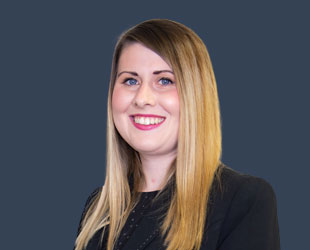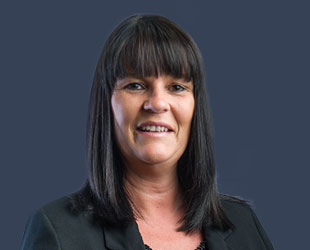- Swansea (Main)01792 773 773
- Caerphilly02920 860 628
- Cardiff02920 225 472
- Carmarthen01267 234 022
- Cowbridge01446 771 742
- Haverfordwest01437 764 723
- Rural Practice01267 266 944
- St Davids01348873671
- Please note that all phone calls are recorded
A Guide to Leasing Commercial Property
Leasing a commercial property is often the biggest investment a business will make. It can also be the most onerous, with commercial property leases containing extensive liabilities and covenants that you will be required to comply with.
It is essential to understand exactly what you are taking on before you sign a commercial lease. You should have a clear way of ending the lease, should you want to, to avoid being tied to the agreement without an exit route.
If subletting and assigning is permitted, you need to be aware of the terms of this and any guarantees you would be required to give to the landlord.
Liability for repairs and maintenance can be particularly harsh, with a risk that you could be forced to pay for disrepair that existed before you took on the tenancy if you do not take necessary precautions.
This guide will explain the following key issues in taking on a commercial lease:
- The leasing process for commercial property
- The extent of the costs involved
- Key pitfalls to avoid when taking on a commercial lease
Independent legal advice is essential in leasing commercial premises to ensure that your rights are protected and that you have the flexibility required for your business needs.
At JCP Solicitors, we have extensive experience in advising commercial clients across a range of sectors, including industrial, retail, office and licensed premises.
Our solicitors are ranked in the leading legal directories and are genuine experts in the commercial property field. We work with our clients to understand their business needs and to put the right legal agreements in place to support these.
Speak to our commercial property solicitors in South Wales
To speak to our expert commercial property lawyers in South Wales, please contact your local JCP Solicitors office or use our contact form to ask a quick question or arrange a call back.
-
- Mark Gilroy
- Director & Head of Commercial Property
-
- Carys Wilson
- Director - Commercial Property
-
- Jenna Birch
- Senior Associate Solicitor - Commercial Property
-
- Joseph Hawkins
- Associate Solicitor - Commercial Property
-
- Rasha Jassim
- Associate Solicitor - Commercial Property
-
- Emma John
- Associate Solicitor - Commercial Property
-
- Eleri Roebuck
- Deputy Team Leader - Commercial Property
-
- Richard Beech
- Ambassador
-
- Chris Davies
- Consultant - Commercial Property
-
- Ruth Dalling
- Legal Assistant - Commercial Property
-
- Ben Cresswell
- Legal Advisor - Commercial Property
-
- Samantha Evans
- Legal Secretary - Commercial Property
-
- Helen James
- Legal Secretary - Commercial Property
-
- Lisbeth Barry
- Trainee Solicitor - Commercial Property
The process for leasing commercial property
Agreeing and signing a commercial lease involves a number of steps that should be takento ensure the lease and premises are right for your business.
Finding the right property
As well as ensuring the property has the facilities you need, such as enough space, the right internet speed and a good location for your business, you will also need to check what commercial classification or planning use class the premises have.
Examples of common property use classes include:
- Retail
- Professional and financial services
- Cafés and restaurants
- Pubs and bars
- Hot food takeaways
- Business use and hotels
If the property you want to take on does not have the right classification for your business, you would need to apply to the local authority for a new classification. There is no guarantee this would be granted if it is considered that the new use would not be appropriate in the area.
Agreeing heads of terms
The basic details of the agreement between you and the landlord will be set out in a document referred to as the heads of terms. These are the details that will form the basis of the lease.
Negotiating the lease
The landlord’s solicitor will draw up a draft lease and send it to your solicitor together with a copy of the landlord’s legal title to the property and their replies to standard enquiries.
If you ask us to act for you, we will go through the lease to ensure it is appropriate for your business needs and negotiate with the landlord on your behalf to obtain the best deal possible. We will make sure that none of the clauses expose you to more liability than you wish to take on and that you fully understand the terms and conditions that you will be agreeing to.
Checking the property title, conducting searches and raising enquiries
We will investigate the landlord’s legal title to the property to make sure it is sound and carry out relevant searches, including with the local authority, the water and sewerage boards and an environmental search agency. We will also make sure that your proposed use of the property will be permitted by the local authority.
Obtaining a property survey
You are likely to be responsible for repairs and maintenance of the property. To be certain of what you are taking on, it is always advisable to ask a surveyor to provide a condition report. You and the landlord can then agree on the state of the property when it is handed over to you, to ensure that you are not later asked to deal with issues that were already a problem before the date of the lease.
The costs of leasing commercial property
Deposit
You will be required to pay a deposit, which could be in the region of 3-6 months’ rent. There may be an associated deed that permits the landlord to take money from the deposit in the event of any rent arrears.
Costs of taking on the lease
As well as a deposit, you will be required to pay a premium for the lease and to pay Stamp Duty Land Tax or Land Transaction Tax following the completion of the commercial lease conveyancing based on this sum and the rent payable.
Annual rent
This is generally payable in advance every month or every three months. Your lease will include provisions for the landlord to review the amount of rent periodically, often every three to five years.
Buildings insurance
As the owner of the property, the landlord will usually arrange the buildings insurance and you will be required to pay for it.
Service charges
The landlord is also likely to make a regular service charge to cover other expenses in respect of the premises.
Utility bills
Utility bills may be covered by the service charge or you may be required to pay these separately. As well as gas and electricity, you will need to pay for water and sewerage charges.
Any phone and internet lines you have set up will also be your responsibility.
Business rates
Business rates are payable based on the property’s rateable value. The government has a tool for checking a business's rateable value, which you should do before you take on the property.
Repair and maintenance
The landlord’s service charges may include a sum to cover repair and maintenance, but your lease will specify what you are responsible for yourself. You should also budget for any fitting out that you want to do.
Key pitfalls to look out for when leasing commercial property
Length of the lease
A short lease may be more expensive than a long lease, but it is important not to end up tied to a property you no longer want. You could request a break clause in the lease, which is likely to cost extra, but it will prevent you from having to carry on paying rent, possibly for years, after you want to leave.
Security of tenure
Security of tenure gives a commercial tenant the right to renew their lease when it expires unless this is excluded in the lease. This is a point for negotiation before the lease is signed as it may be important to your business in the future to be able to stay at the premises for as long as you want.
Subletting and assigning
You can also ask for provisions in the lease that will allow you to sublet the property or assign the lease to someone else. This will give you the option to leave if you want, but still have the rent covered by your sub-tenant. You would remain financially liable and the landlord would also retain the right to make you take back the lease.
Permitted use
The lease will detail how you may use the property and you should make sure that it is wide enough to cover any future growth of your business. This includes what activities can be carried out there, what can be stored there and what changes can be made to the premises.
Liability for repairs
A full repairing and insuring lease will make you responsible for the whole fabric of the building, inside and out, to include expensive repairs such as a new roof.
To protect your position as far as possible, you should have your surveyor’s condition report attached to the lease with the proviso that you are only responsible for putting the property into the same condition as it was when you took it on.
Service charges
If you are renting part of a building, then you will be required to pay services charges in respect of expenses such as building maintenance, buildings insurance, cleaning and security.
It is recommended that you negotiate a cap to the service charge where possible as there is a risk that without this you could be liable for potentially huge expenses, such as payment towards a new roof.
Why use our commercial lease solicitors in South Wales?
Taking on a commercial lease is one of the most important transactions a business can enter into and it is important to make sure it has been properly negotiated to give you the best chance of success.
Our experienced commercial lease solicitors have in-depth knowledge of the risks and pitfalls found in commercial leases. They will work with you to understand exactly what your business needs and ensure that the lease that is agreed upon is the best deal possible.
As well as years of experience in the commercial rental sector, our solicitors have the following recognition in the Legal 500:
- Planning & Environment
- Agriculture & Estates (for which we hold the top Tier 1 ranking, with Director and Head of Rural Practice Rory Hutchings recognised as a Leading Individual
- Head of Commercial Property Mark Gilroy has been listed for his “excellent ties with local property professionals, ensuring that he receives a varied roster of work, including as it relates to development and financing.”
We also hold Chambers & Partners’ top Band 1 ranking for Agriculture & Rural Affairs, with Rory Hutchings also being individually ranked Band 1.
JCP Solicitors has local offices covering the whole of South Wales, East Wales and West Wales in Cardiff, Swansea, Caerphilly, Carmarthen, Cowbridge, Haverfordwest and St Davids. This allows us to offer a convenient local service and excellent knowledge of local property markets and issues for our clients.
Speak to our commercial conveyancing solicitors in South Wales
To speak to our expert commercial property solicitors in South Wales about leasing commercial property, please contact your local JCP Solicitors office:
To ask a quick question or arrange a call back, use our simple contact form to make an enquiry.













